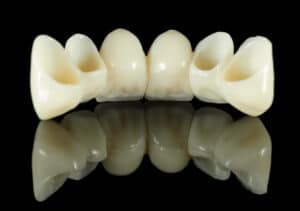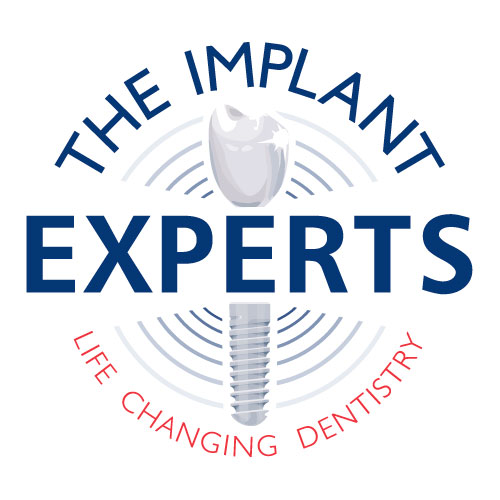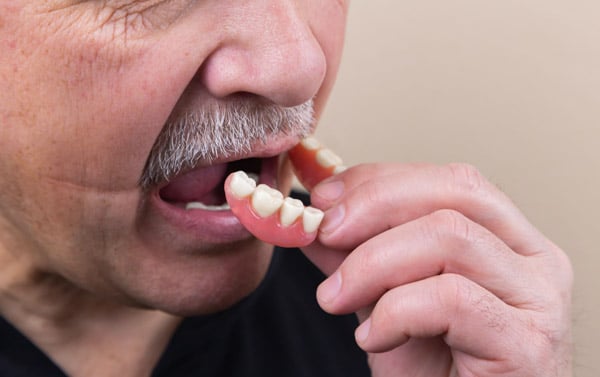In another article, we looked at 7 nasty consequences of not replacing missing teeth. But which type of replacement teeth are best for you? In this article, we consider the options of dental bridges, dentures, and dental implants, and the key differences between them.
1. Dental bridges

In order to replace a single missing tooth, or perhaps two missing teeth, your dentist may recommend a dental bridge. In this procedure, the healthy teeth on either side of the gap are reduced to small stumps (called drilling down) which will be used to hold crowns to support the bridge between them.
This is an effective way to replace missing teeth and has been the preferred technique for many years. Dental bridges typically last 7-10 years and can be an excellent way to restore your smile.
However one of the problems with this technique is the need to reduce the adjacent teeth on either side of the space. If these teeth are in poor condition and need restoring in their own right this is not a problem. However, if they are healthy teeth many dentists don’t like the idea of trimming down and damaging otherwise healthy tooth tissue.
2. Dentures

Dentures can also be an excellent way to replace missing teeth, particularly if you have multiple teeth missing. The obvious disadvantage with dentures is the fact that they are removable and many people dislike the idea of removing dentures at night
In the past dentures were often uncomfortable and moved around slightly during eating, However, modern dentures are highly crafted pieces of technology and should always fit accurately and comfortably. Chrome or metal dentures can be created, which are stronger than conventional plastic dentures and can be made much thinner and therefore feel more comfortable.
3. Dental implants
From a dentist’s or oral surgeon’s viewpoint, dental implants are the preferred option to replace missing teeth. Whilst they can work out more expensive at the beginning, they offer a range of advantages over traditional bridges or dentures:
a) there is no need to drill down healthy teeth
b) the final teeth are fixed firmly in place
c) the implants actively help to support the surrounding jaw bone which can otherwise waste away
d) dental implants can last years longer than dental bridges or dentures – making them an economical option in the long term
In some cases it is also possible to support a removable denture with dental implants – an excellent way to stabilise loose dentures – usually with two or four implants. They are created with a clip on top which fits inside the denture, and then locks the denture in place.
If you would like to discuss same day dental implants with The Implant Experts, call to arrange your free initial chat with our dental implant co-ordinator where you can discuss your situation, find out what the various treatment options entail and their prices.

